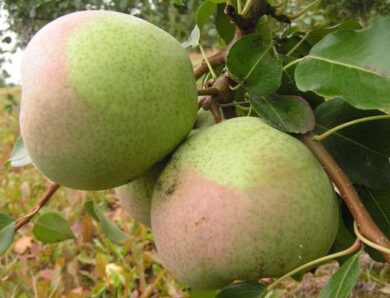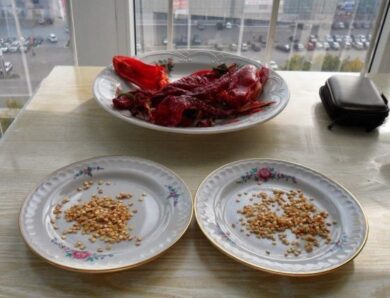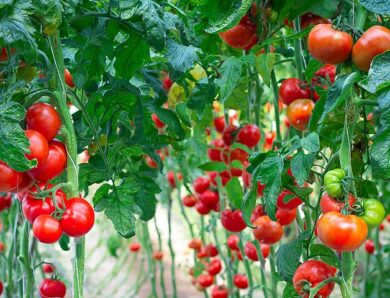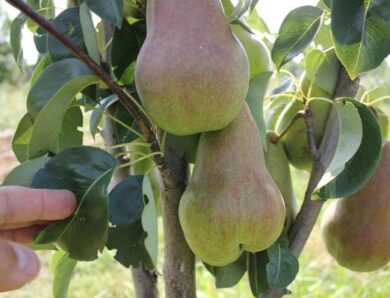Grafting cherries on cherries: terms and rules for beginners
Unlike cherries, cherries do not tolerate frost and the amount of harvest does not always meet the expectations of gardeners. Are there any methods to solve this problem? Of course! Grafting cherries on cherries allows you to adapt fruit and berry crops to different weather and climatic conditions, increase fruiting and increase yields.
You don't know, how to graft cherries on cherries? Our article will help you choose the best time for the procedure, prepare rootstock and rootstock, as well as competently make plant grafts.
When it is better to vaccinate
That the vaccination was successful and the stem took root on the tree, it is important to choose the right time to perform the procedure. According to the recommendations of experienced gardeners, it is best to inoculate fruit and berry crops in early spring. The optimal period is the period from early March to mid-April, when the air temperature no longer falls below zero. When frozen, the fruit tree stem may die.
Why is it better to inoculate cherries on cherries in the spring? During the period of active spring sap movement the probability of successful fusion of rootstock and rootstock increases.
If for some reason failed to inoculate the plant in the spring, you can perform the procedure in the summer. However, choose a gloomy and not rainy day in the period from mid-July to late August. As noted by gardeners with many years of experience, grafting cherries on cherries in the summer in such weather promotes better survival of cuttings.
You can inoculate two fruit and berry crops in the fall? You should not abandon this idea, just try to do everything before the cold. If you inoculate a tree in September, then under favorable weather conditions the stem will have time to take root before the first frosts.
Necessary tools
Do not forget to prepare all the necessary tools and accessories in advance. You will need it during the procedure:
- sharpened budding knife (the tool must be sharp, to minimally injure the plants and prevent any infection);
- garden saw and secateurs;
- binding material (dense polyethylene film or wide insulating tape);
- wound treatment and vaccination site (garden lime or oil paint based on drying oil);
- rootstock (stem grafted varieties of cherries);
- rootstock (cherry tree, to which another fruit and berry crop will be grafted).
Preparation of rootstocks and rootstocks
With basic definitions (rootstock and rootstock) already acquainted. Now it is worth noting, that the success of the procedure depends on it, which fruit and berry crops will be selected as rootstocks and rootstocks. Since we are going to increase the fruiting and yield of cherries, then, so, this culture is our rootstock.
The best options for the rootstock are those trees, which have a similar structure and the same type of structure. Following the recommendations of professional gardeners, the stem of the cherry tree can be grafted on cherries of another variety or cherries (Lyubska, Vladimirskaya, Магалебская, as well as Pico hybrids, VSL, Giselle and Colt).
Select and cut the stem should be in the fall before frost. During this period, the trees have fallen leaves, juicing stopped, the plant is dormant. Choose annual shoots, the average diameter of which is 5 mm At the top of the petiole must be a bud of growth and a few leaf buds, placed on the sides.
The rootstock is placed in a cold room, where it will be stored until spring. Before inoculation, the stem is removed from storage, disinfected in a weak solution of manganese, give time, to get the chips used to room temperature, then soaked in water for 16-24 hours. The more moisture the branch absorbs, the sooner she wakes up.
Step-by-step instructions
Farmers identify several ways to graft cherries on the cherry tree. The most common methods of vaccination include:
- at semi-cleavage;
- in the split;
- on the bark;
- normal or improved copulation;
- bridge;
- in the side cut;
- in an angular cut.
Let's take a closer look at one of the simplest methods, which can handle even beginners in gardening.
The method of conventional copulation (applies only if, if the thickness of the rootstock and rootstock are identical - the maximum 15 mm):
- At the bottom of the petiole and on a branch of a cherry tree make oblique cuts no longer than 3-4 div.
- Apply the chips to the rootstock as follows, so that both slices completely coincide.
- The inoculation site is tightly wrapped with plastic wrap or tape.
- Coat the top of the petiole and the joint with garden pitch or oil paint.
As you can see, grafting cherries on cherries will not be much trouble. It takes a little time and desire.
Further care
That the vaccination procedure was a success, it is necessary to provide the plant with proper care. Proper care of grafted wood involves the treatment of fruit and berry crops from pests, pinching and pruning.
Across 1-2 months after the procedure, a splint should be applied to the injection site, which will protect the branch from gusty winds. In early August, gardeners recommend pruning the shoots, formed on top of the cherry rootstock. In the spring it is necessary to make the first pruning of young shoots.
Video "Grafting cherries on cherries"
In this video you will learn about it, how to graft cherries on cherries.




